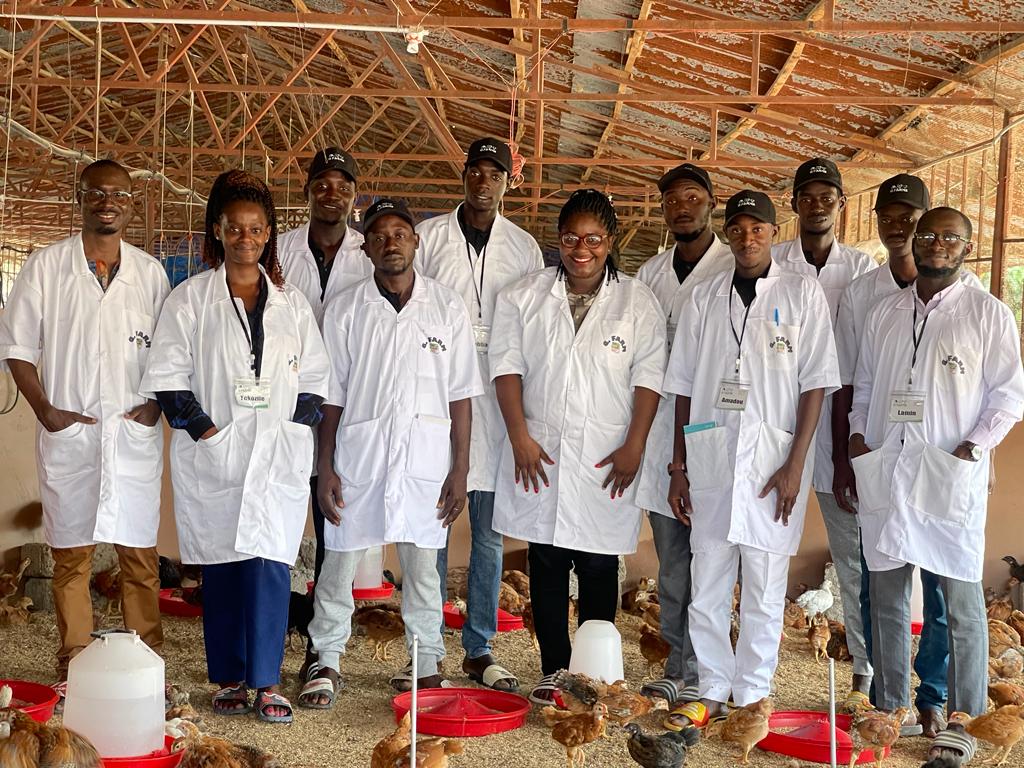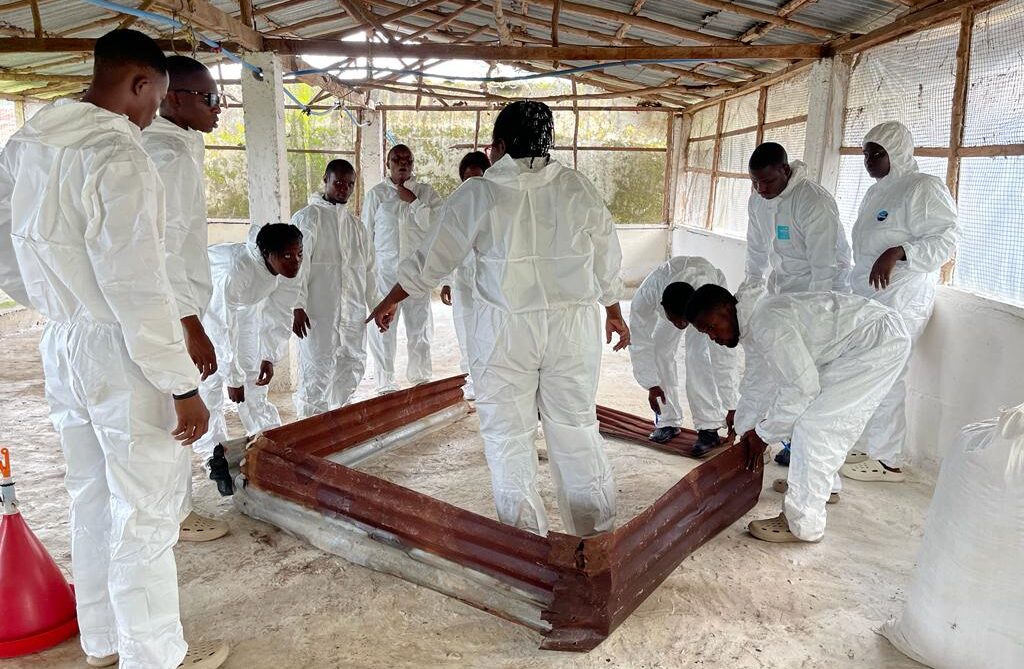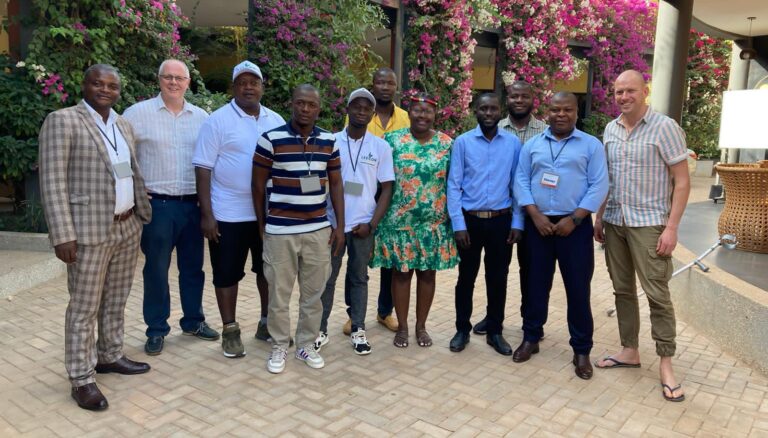By: Eve Kamba and Joe Antonyo
Training plays a crucial role in the success of the African Poultry Multiplication Initiative (APMI), ensuring our partners are well-prepared for their roles and responsibilities. Our training program utilizes a structured framework consisting of needs assessments, resource development, capacity building, and monitoring and evaluation. By identifying skill gaps, developing tailored training resources, and engaging stakeholders, World Poultry Foundation (WPF) ensures the knowledge transfer of key skills, effective implementation of APMI and the long-term sustainability of the program.
Defining and Prioritizing Objectives
The process begins with a collaborative effort with our partners to clearly outline their goals within the APMI program. These objectives serve as the foundation for identifying the tasks, responsibilities, and skills needed for their success. Once this frame is built, we review current performance evaluations and conduct feedback sessions with existing staff. These sessions offer important insights into current knowledge gaps and promote open communication channels, building ongoing support into the company’s culture.
Identifying Gaps
With training needs identified and prioritized, we begin designing a customized training programs tailored to address the identified gaps. Careful consideration is given to ensuring the chosen methods are effective and engaging, fostering active participation and learning. Diverse training methods are employed, including in-person sessions, remote learning, on-the-job training, skills enhancement workshops, exchanges with past APMI partners, and participation in relevant regional stakeholder meetings. Our trainers range from local specialists and WPF personnel to international experts. The diversity of the training methods and trainers reflects the adaptability and inclusivity of the APMI program.
Getting Started with Training
WPF adapts its programming to local contexts, tailoring training content to address specific needs and challenges unique to each community. This ensures that the training remains practical and applicable, empowering participants to succeed in their respective environments. By integrating local insights and knowledge into the training approach, WPF maximizes its impact and fosters sustainable growth in the poultry industry. Some examples of training opportunities we provide to our APMI partners include:
FSR Training

As part of our commitment to supporting all of our private-sector APMI partners, we assist them in recruiting and hiring Field Service Representatives (FSRs). FSRs serve as the primary interface between the private-sector company and stakeholders. They dedicate the majority of their time to fieldwork, where they engage with and support Brooder Units and small-scale producers.
The training provided for FSRs is a comprehensive onboarding program designed to familiarize them with their roles and responsibilities. This includes thorough product training, field operations, and technology utilization, equipping them with the necessary tools and knowledge for success. Initially, WPF supports the training of FSRs, gradually transitioning this responsibility to the private-sector partner as donor funding diminishes.
In-Country Training

With our newest APMI partners in Sierra Leone and The Gambia, we worked closely with each country to understand their different needs and develop personalized in-country training opportunities on topics from business planning to biosecurity. While some of the topics overlap across the two countries, close attention was given to ensure that sessions were tailored to the specific needs of each partner company, with the right trainers covering the most pertinent topics for the targeted staff members.
Specialized Training

Specialized training is also offered to partners. Like the sales training session we recently offered in Banjul, The Gambia to all current APMI partners from Zambia, The Gambia, and Sierra Leone. During this training, we hired sales expert, Nick Kingesley-Johnson from Whitten & Roy Partnership to delve into essential selling and management skills aimed at enhancing sales performance and supporting the on-the-ground-management of our program.
Monitoring and Sustainability
Once the training programs are designed, WPF oversees their rollout and closely monitors the participation and progress of participants. Tracking their engagement allows WPF to assess the effectiveness of the training initiatives and identify areas for improvement. By collecting feedback throughout the training process, WPF gains valuable insights into participants’ experiences and challenges. This feedback loop enables WPF to continually refine and enhance the training programs, ensuring they remain relevant and aligned with the overarching goals of the WPF and the APMI.
An essential part of our approach is for programs to outlast donor funding, thus we recognize the importance of ensuring the sustainability of the initiatives we support. To this end, we provide ongoing support through a hub of resources, including manuals, audio-visuals, and online video training. These resources serve as valuable tools for our partners to continue learning and coaching others, even after our direct involvement concludes. By empowering our partners with the knowledge and resources they need, we aim to foster long-term success and resilience within the communities we serve.
CATEGORY
LOCATION